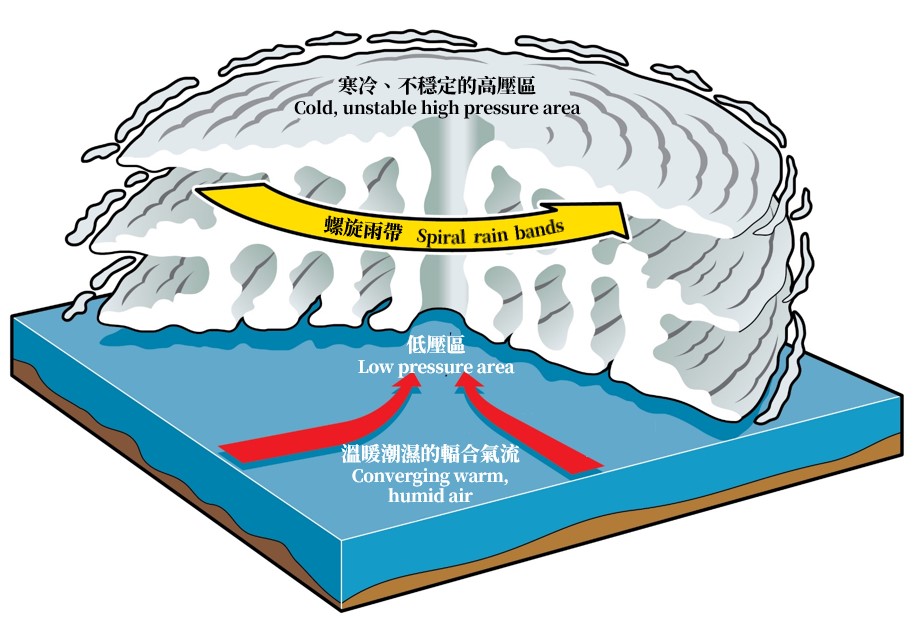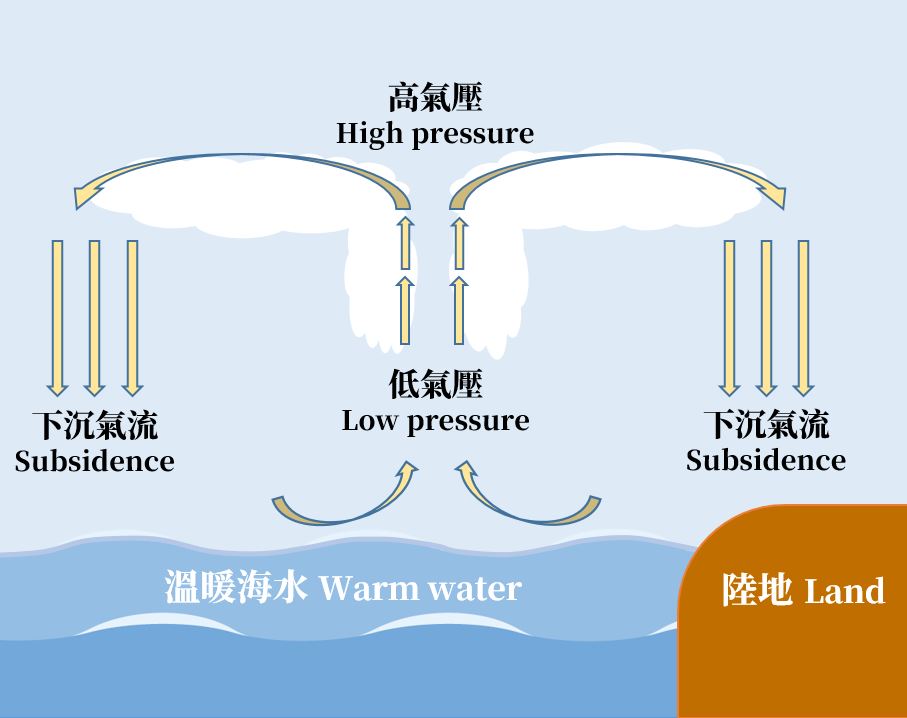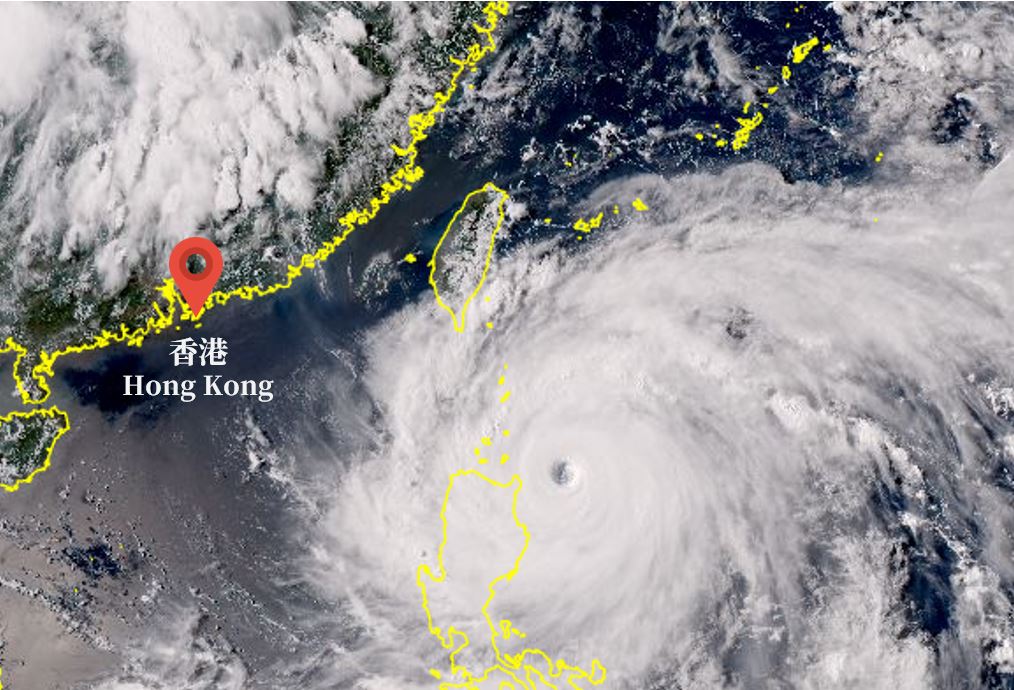How Typhoons Affect Our Weather and Air Quality?
Published on 31 July 2023
It's summertime in Hong Kong, and that means typhoon season! We all know that typhoons can be a real disaster with their associated strong winds and heavy rain, but did you know that they can also affect our weather and air quality even when they are far away?
The Formation of Typhoons
So, how exactly do typhoons form? They develop over warm surface waters in tropical regions during summer
and early autumn. As the ocean receives direct sunlight, the water temperature rises which causes a large amount
of water vapour to evaporate, resulting in convection and the formation of a low-pressure area. It then draws in
moist air from the surroundings and the rising air rotates around the low-pressure center in a counter-clockwise
direction in the Northern Hemisphere, giving the typhoon its characteristic circular shape.

A Typhoon's Impact on the Weather Conditions
As a typhoon approaches southeast China, it starts to affect the weather in Hong Kong.
Here's what happens: the air inside the typhoon rises and becomes colder and denser. Then, under the force of gravity, the denser air sinks to neighbouring areas, creating high pressure at the land surface. This sinking air inhibits the formation of clouds, which means that we will get a whole lot of sunshine! This strong sunlight also increases the atmospheric temperatures and leads to some seriously hot weather.

A Typhoon's Impact on the Air Quality
There's more to worry about than just hot weather when a typhoon is on the horizon – be aware of some air quality issues, too!
When a typhoon is nearby, it can cause two major problems that affect our air quality. First, the sinking air at the periphery of the typhoon creates stable atmosphere, which means that the vertical dispersion of air pollutants is hindered. This leads to an increase in pollutant concentration near the ground.
Remember that abundant sunshine which we mentioned earlier? It also enhances photochemical reactions that produce even more air pollutants, such as ground-level ozone, which is obviously not great for our health!

(Image credit: Japan Meteorological Agency)
On the other hand, when a typhoon heads towards southeast China, the wind direction in Hong Kong may change. Air pollutants from the northwest regions may be carried right into our city. If the wind is light, these pollutants will be difficult to disperse and they will accumulate.
So, it's crucial to keep an eye on the weather and air quality conditions and take necessary precautions, such as wearing masks and avoiding prolonged outdoor activities in hot weather and when the air quality is poor. Don't let the burning sun and air pollution get the better of you!





